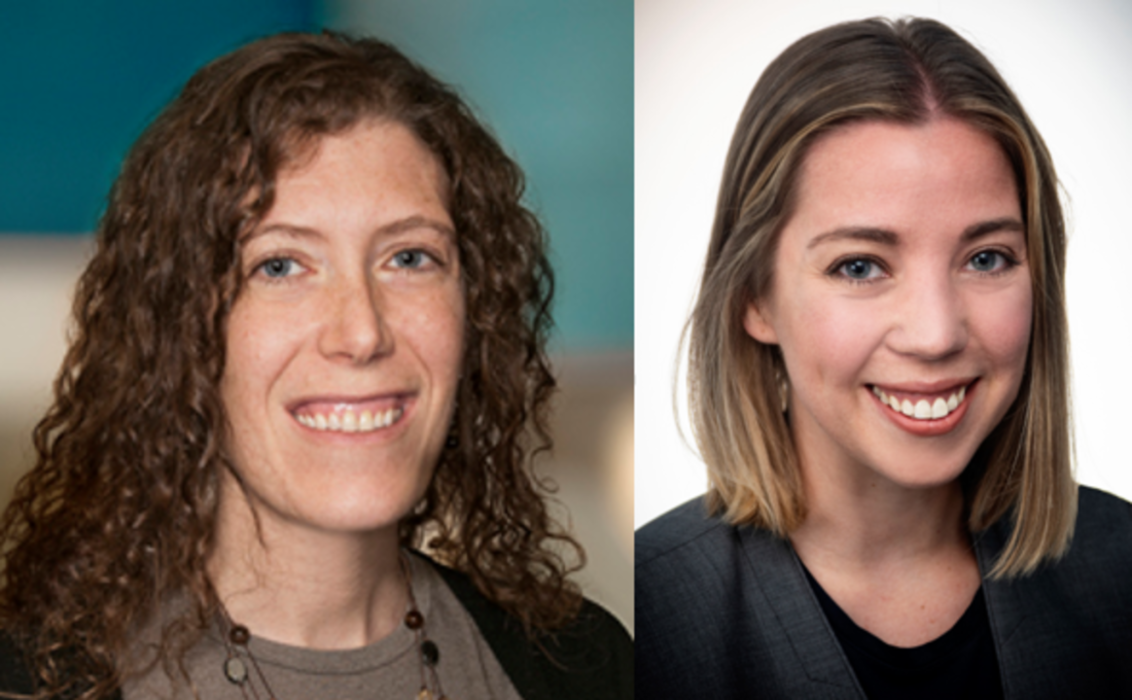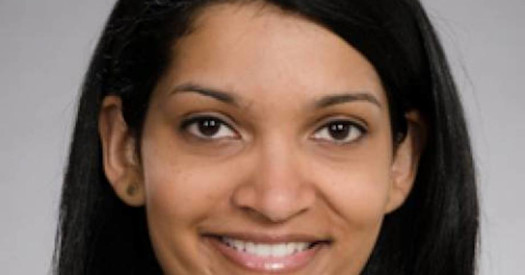 Drs. Sarah Leary (left) and Erin Crotty
Drs. Sarah Leary (left) and Erin Crotty
'Success of this project has the potential to support a transformation in clinical standard practice and usher MRD monitoring into the next generation of clinical trials.'
Brain tumors represent the leading cause of cancer-related deaths among children in the United States age 14 and younger, and nearly 14,000 children are estimated to be living with a primary brain tumor, according to the National Brain Tumor Society. The organization estimates that more than 4,000 new childhood brain tumors will be diagnosed in 2022.
BBI’s Dr. Sarah Leary, who leads the multi-disciplinary Brain Tumor Program at Seattle Children’s, and her colleague Dr. Erin Crotty, a pediatric neuro-oncologist in the program, are committed to lowering that number. With Crotty’s new one-year, $100,000 Emerging Scientist Award from the Children’s Cancer Research Fund (CCRF) enabling the expansion of their existing work supported by BBI, they and others at Seattle Children’s are making substantial progress toward their shared commitment.
“Our team has a new, reliable, and non-invasive test for detecting and treating microscopic cancer cells leftover after a patient has undergone treatment,” said Crotty, who joined Seattle Children’s as an assistant professor in 2021 after serving since 2017 as a fellow and research associate at the Fred Hutchinson Cancer Center.
“We’re using what we call ‘low-coverage whole genome sequencing,’ or lcWGS, and have found this platform is more effective at finding residual tumor cells than either MRIs or pathology techniques. With this new grant, we’ll be offering clinical testing to patients receiving standard brain tumor therapies by collecting and testing cerebrospinal fluid samples.”
This cell-free DNA (cfDNA) technique provides a reliable and non-invasive method of detecting true disease, Crotty said. For children with brain tumors, this could enable personalized treatment with reduced toxicity.
While the majority of patients likely will be from Seattle Children’s, testing on this platform will be offered to other institutions. Scientists at the University of California, San Francisco already have expressed interest in testing for at least one patient, Crotty said.
“It’s a small community of researchers studying pediatric brain tumors, and we know other investigators around the nation,” said Leary. “We at Seattle Children’s are the only ones having this platform up and running, and we want to offer our testing, funded by the CCRF grant, to others and further verify its efficacy and accuracy. In many ways, this work exemplifies precision medicine in addressing potential relapses of pediatric brain tumors.”
CCRF is a non-profit based in Minneapolis that supports the research of scientists across nationwide making “the greatest impact for children fighting cancer,” as well as helping families “navigate the difficult experience of cancer treatment and survivorship.” It was established in 1981 and, thus far, has contributed $200 million in grants and other funding to help fulfill its mission.
The work that served as the catalyst for Crotty’s CCRF funding was facilitated by an agreement with BBI. Rather than providing direct funding, BBI agreed to conduct shallow whole genome sequencing on 25 samples of Cerebrospinal fluid, which surrounds the brain and spinal cord. Those samples were fully processed, including the cfDNA extractions.
Crotty and Leary are drafting a paper on the project that they hope to submit in January to a peer-reviewed journal. But their primary focus now is the CCRF grant.
“Our CCRF-funded study will leverage a new liquid biopsy platform for detecting Measurable Residual Disease, or MRD, microscopic cancer cells leftover after treatment,” Crotty said. “This is the first MRD test available to children with brain tumors receiving therapy, for real-time decision-making. We predict that by offering lcWGS as a clinical test, oncologists will be better equipped to tailor therapies for improved outcomes in patients who are high-risk of their cancer recurring. It has the potential to improve survival by identifying recurrent disease earlier and minimizing unnecessary neurosurgery and radiation. Success of this project has the potential to support a transformation in clinical standard practice and usher MRD monitoring into the next generation of clinical trials.”

